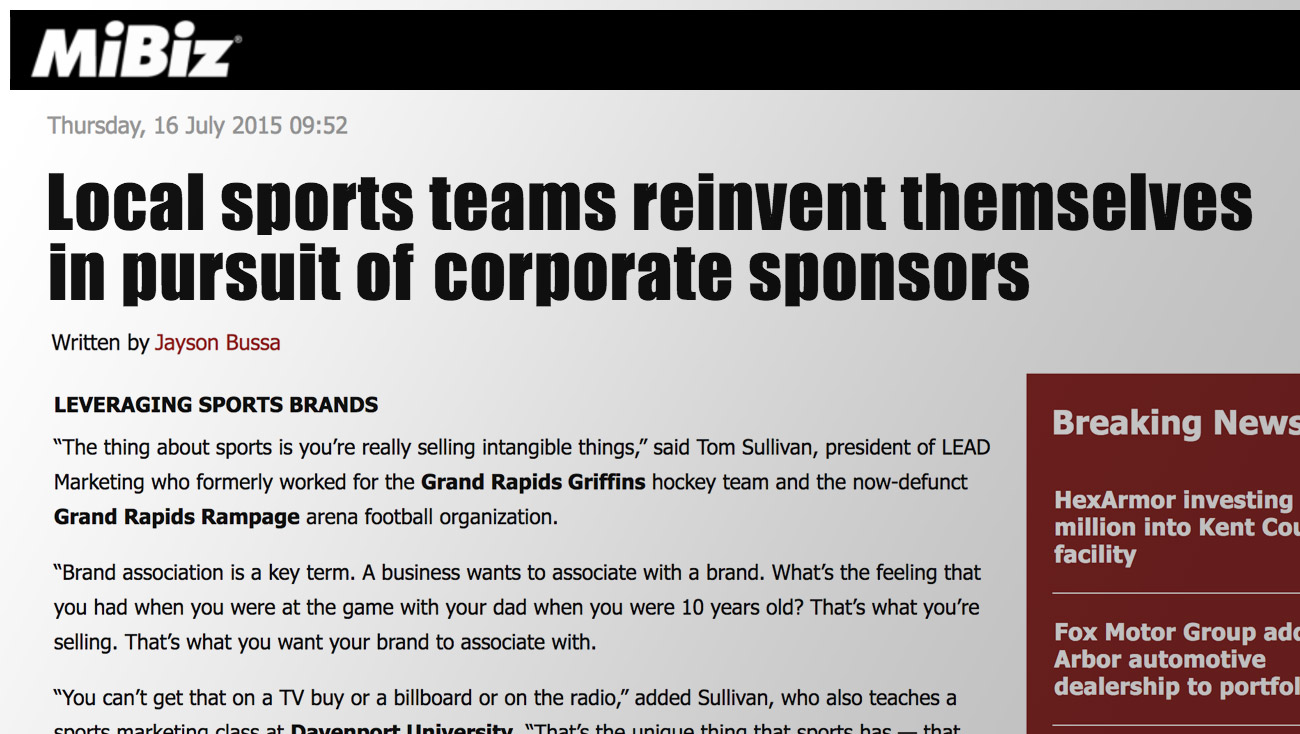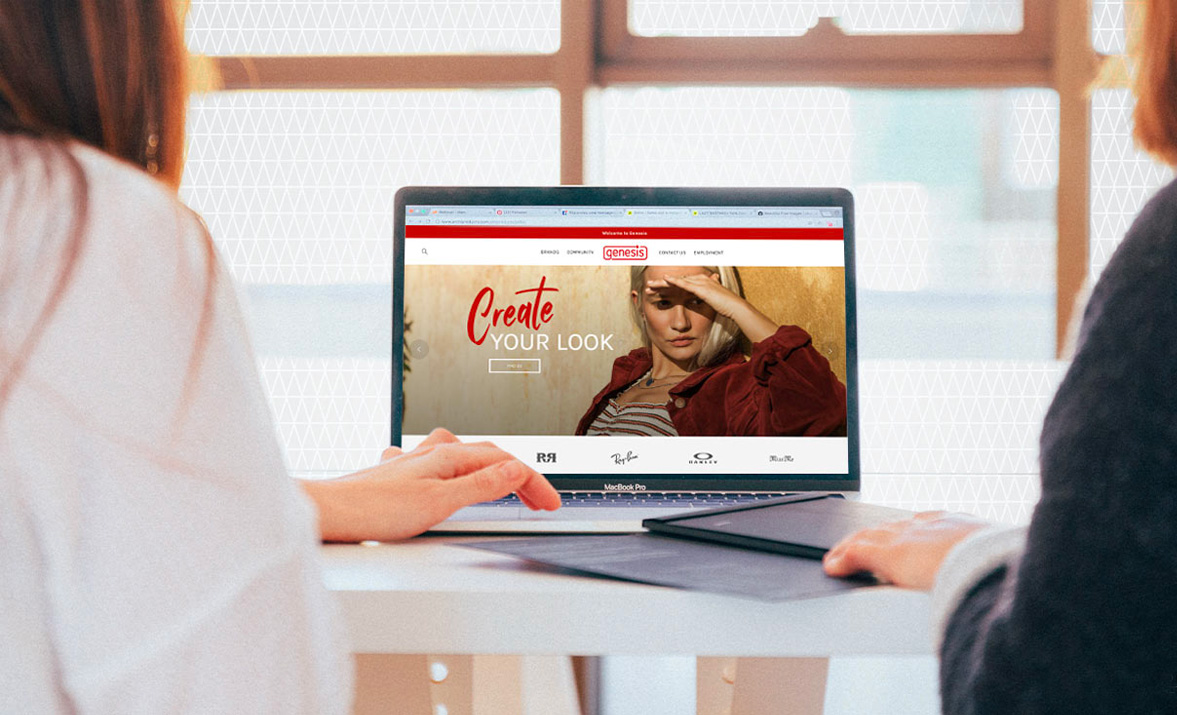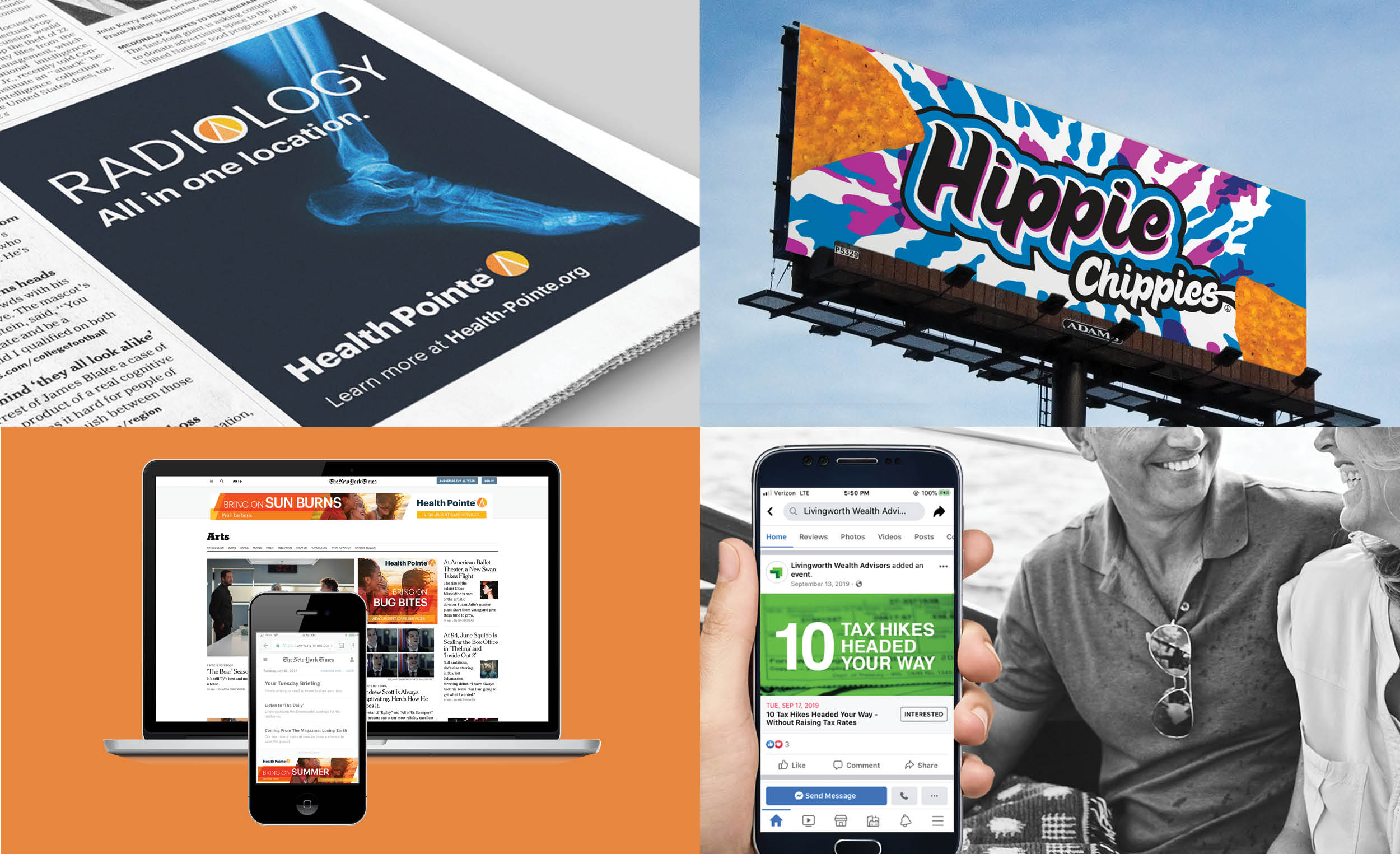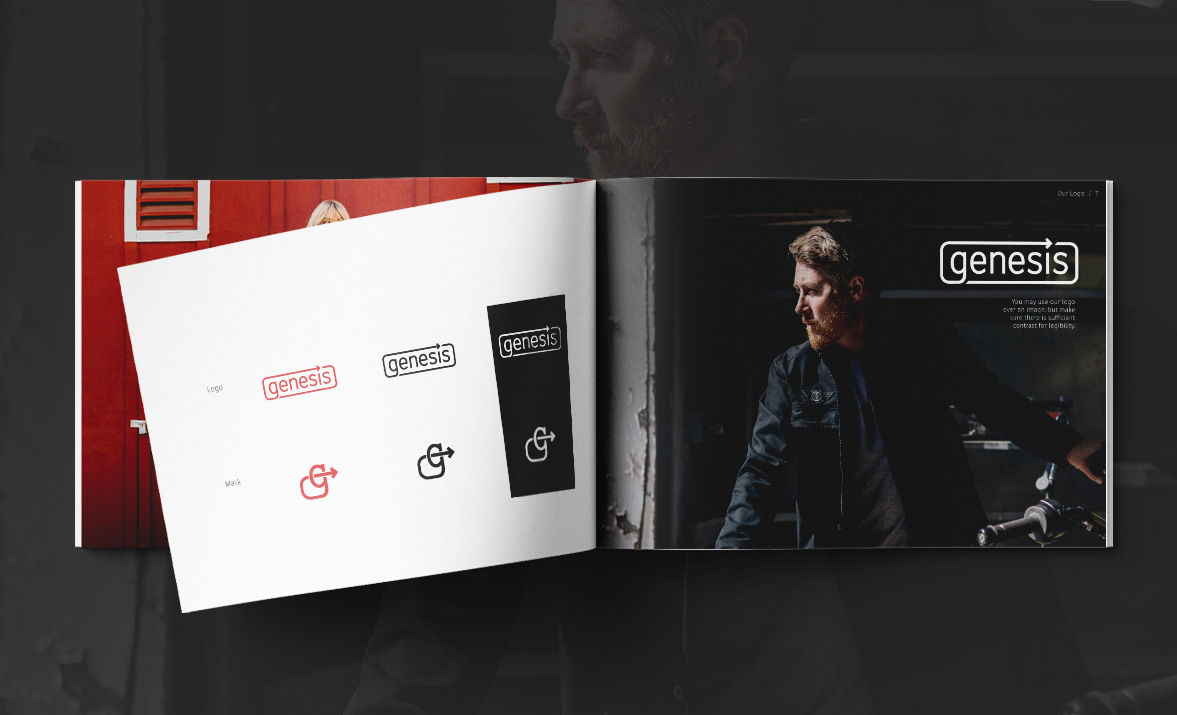(GRAND RAPIDS, MI) – While athletes for West Michigan’s semi-professional sports teams compete for dominance on the court, field or ice, each organization’s front office is doing the same in the sales game, chasing sponsorship dollars that account for a crucial piece of their annual budgets.
By many accounts, sports sponsorships are a truly unique avenue for marketing, one used by businesses in seemingly every industry imaginable — from chiropractors and eye doctors to banks and plumbers.
However, each has a different goal and a different strategy to reach those marketing goals.
“The thing about sports is you’re really selling intangible things,” said Tom Sullivan, president of LEAD Marketing who formerly worked for the Grand Rapids Griffins hockey team and the now-defunct Grand Rapids Rampage arena football organization.
“Brand association is a key term. A business wants to associate with a brand. What’s the feeling that you had when you were at the game with your dad when you were 10 years old? That’s what you’re selling. That’s what you want your brand to associate with. You can’t get that on a TV buy or a billboard or on the radio,” added Sullivan, who also teaches a sports marketing class at Davenport University. “That’s the unique thing that sports has — that brand association.”
Not only are teams looking for ways to reinvent themselves, but the whole concept of sports sponsorships has shifted, in part because of the explosion of social media in the last decade, said LEAD Marketing’s Sullivan.
“I give money to the team and it helps run the team so I can slap my logo on the wall — that was the mentality 10-20 years ago,” said Sullivan, whose firm is the advertising agency of record for the Grand Rapids Griffins.
“Sports brands have a huge influence on their followers and not just confined to the outfield wall in the game,” he said. “More sophisticated sports marketers are taking advantage of sports as a culture.”
This can mean anything from getting a product directly in front of fans on game day or developing a social media promotion.
Sullivan recalled a sponsorship he helped develop between YellowHose.com and the Griffins. Unlike with traditional sponsorships, the organization that promotes ethanol fuels didn’t even have signage in the arena.
Instead, the Griffins would release videos via Facebook of their mascot using a yellow hose to fill up his car on FlexFuel at a gas station. Fans could guess which station it was for a chance to win a prize.
Sullivan said this is one of the many ways that businesses can leverage sports brands 365 days a year instead of exclusively on game day.






